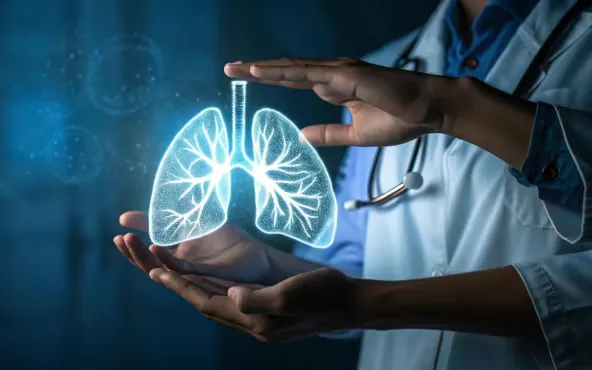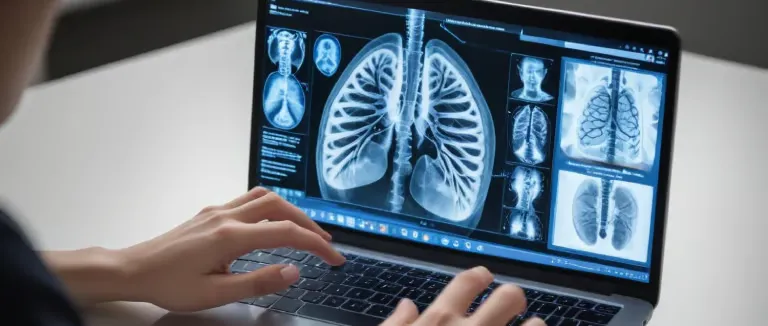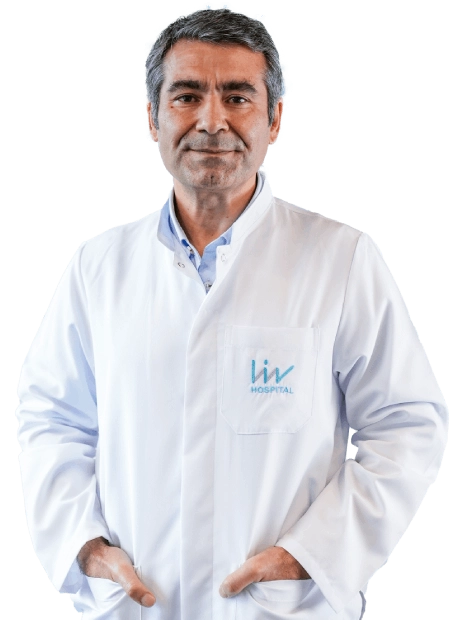What is Advanced Lung Cancer Screening? Lung Cancer Screening In Turkey
-
What is Lung Cancer Screening?
-
Who Should Consider Lung Cancer Screening?
-
The Lung Cancer Screening Process Explained
-
Evaluating the Benefits and Risks of Lung Cancer Screening
-
Why Choose Turkey for Advanced Medical Services?
-
Lung Cancer Screening Expertise at Liv Hospital
-
After Your Lung Cancer Screening Scan
Discover Liv Hospital's advanced lung cancer screening using low-dose CT (LDCT). Learn about eligibility, benefits, and risks for high-risk individuals. Book today.
What is Lung Cancer Screening?
The Importance of Early Lung Cancer Detection
Lung cancer is one of the leading causes of cancer-related deaths worldwide. The disease often shows no symptoms in its early stages, making early detection critical for improving survival rates. Lung cancer screening allows physicians to identify potentially cancerous lesions before they cause symptoms, enabling earlier and more effective treatment.
Doctors often follow the latest lung cancer screening recommendations when evaluating patients at risk.
Understanding Low-Dose Computed Tomography (LDCT) ScansLow-Dose Computed
Many experts agree that LDCT lung cancer screening significantly improves early detection rates.
Tomography (LDCT) is the most recommended method for lung cancer screening. Unlike standard chest X-rays, LDCT can detect smaller nodules or abnormalities in the lungs, all while exposing the patient to significantly less radiation.
The new lung cancer screening guidelines emphasize annual LDCT for certain high-risk groups.
Patients categorized as lung cancer screening high risk typically include long-term smokers over 50.

Who Should Consider Lung Cancer Screening?
Are you aware of the criteria that determine lung cancer screening eligibility?
Current Lung Cancer Screening Guidelines
According to recommendations from the U.S. Preventive Services Task Force (USPSTF), annual lung cancer screening is advised for adults who meet specific risk criteria. These guidelines are designed to target individuals most likely to benefit from early detection.
The USPSTF lung cancer screening guidelines were updated to include a broader age range and lower smoking threshold.
Age and Smoking History Criteria
Eligible individuals are typically:
- Aged between 50 and 80 years
- Current smokers or those who have quit within the past 15 years
- Have a 20 pack-year smoking history (e.g., 1 pack/day for 20 years)
Other Factors Determining Lung Cancer Screening Eligibility
In addition to smoking history and age, other factors such as family history of lung cancer, exposure to radon or asbestos, and certain chronic lung diseases may also influence eligibility.
The Lung Cancer Screening Process Explained
Preparing for Your LDCT Lung Cancer Screening Test
Preparation for LDCT is minimal. Patients may be asked to remove jewelry and wear a hospital gown. No fasting or medication restrictions are typically required.
What to Expect During the Low-Dose CT Scan Procedure
Low-dose CT lung cancer screening is the preferred method due to its effectiveness and minimal radiation exposure.
The procedure is quick, painless, and non-invasive. You will lie on a table that slides through a CT scanner. The scan itself takes only a few minutes, and no contrast dye is needed.
Interpreting Your Lung Cancer Screening Results
Results from the LDCT scan will be reviewed by a radiologist. If any abnormalities are found, further testing or follow-up imaging may be recommended. Not all findings are cancerous—some may be benign or require monitoring over time.
Evaluating the Benefits and Risks of Lung Cancer Screening
The lung cancer screening benefits clearly outweigh the risks in appropriately selected individuals.
One concern with this procedure is the potential lung cancer screening risks, such as false positives.
Reducing Mortality Through
Early DetectionStudies have shown that LDCT lung cancer screening can reduce mortality by detecting cancers at an earlier, more treatable stage.
Understanding Radiation Exposure from LDCT Scans
While LDCT involves exposure to a small amount of radiation, the benefits of early detection generally outweigh the risks, especially in high-risk individuals.

Why Choose Turkey for Advanced Medical Services?
Turkey's Position as a Global Hub for Healthcare Excellence
Turkey has emerged as a top destination for medical tourism, offering high-quality healthcare services at competitive costs.
Access to World-Class Medical Technology and Specialists
Hospitals in Turkey, such as Liv Hospital, are equipped with state-of-the-art medical technologies and internationally accredited healthcare professionals.
Lung Cancer Screening Expertise at Liv Hospital
Liv Hospital's Commitment to Early Cancer Detection
At Liv Hospital, we emphasize the importance of early cancer detection through regular screenings, especially for high-risk individuals.
Advanced LDCT Imaging Technology for Precise Screening
We utilize advanced LDCT technology to provide accurate and detailed images, helping our radiologists identify even the smallest abnormalities.
Experienced Radiology and Thoracic Surgery Teams
Our multidisciplinary team, including radiologists, thoracic surgeons, and oncologists, collaborates to ensure comprehensive patient care.
Comprehensive Support for International Patients
Liv Hospital offers multilingual support and assistance with travel arrangements to make the process smooth and stress-free for international patients.

After Your Lung Cancer Screening Scan
Follow-up Recommendations Based on Screening Results
After the scan, your doctor will explain the lung cancer screening results and recommend next steps.
Based on your scan results, your physician may recommend annual screenings, follow-up imaging, or a referral to a specialist for further evaluation.
When to Stop Annual Lung Cancer Screening
Screening may be discontinued when the individual turns 81, has not smoked for 15 years, or develops health problems that limit life expectancy or the ability to undergo lung surgery.
Frequently Asked Questions
The most common lung cancer screening test uses low-dose computed tomography to detect nodules.
LDCT (Low-Dose Computed Tomography) is the primary test recommended for lung cancer screening.
Individuals aged 50–80 years with a 20 pack-year smoking history, who currently smoke or quit within the past 15 years.
Annual screening is recommended for those who meet the eligibility criteria.
Risks include minimal radiation exposure and the possibility of false positives or incidental findings.
You may need additional tests such as follow-up CT scans, PET scans, or a biopsy to determine the nature of the finding.
Coverage varies; many insurance providers and national health systems do cover LDCT for high-risk individuals.
Screening generally stops at age 81, or earlier if the individual is no longer considered high-risk.
* Contents of this page is for informational purposes only. Please consult your doctor for diagnosis and treatment. The content of this page does not include information on medicinal health care at Liv Hospital







